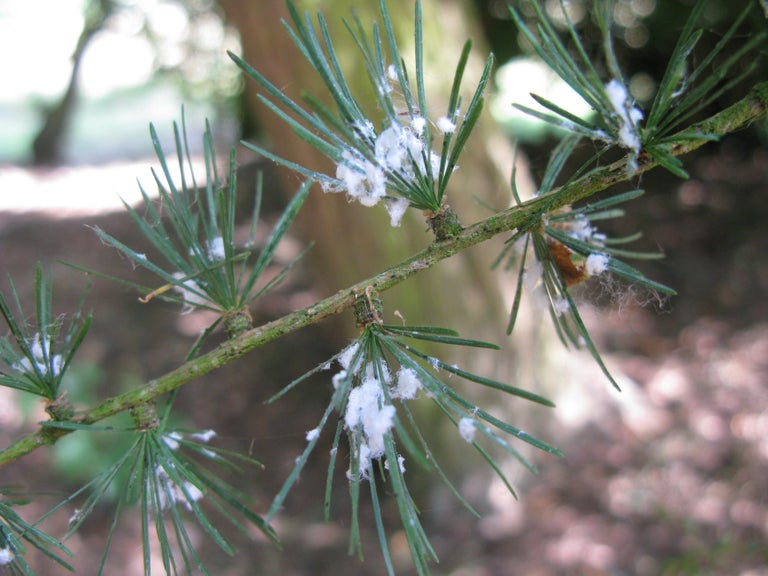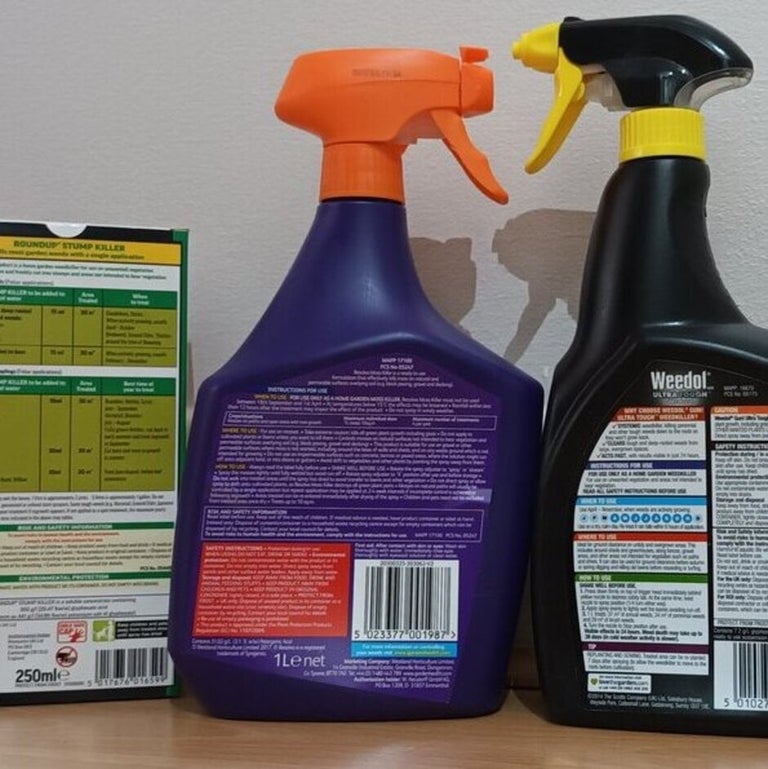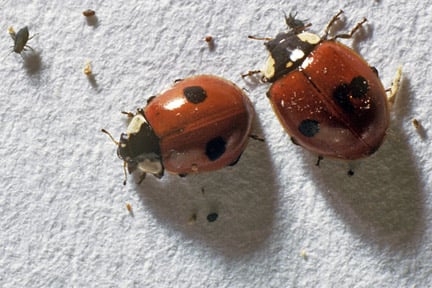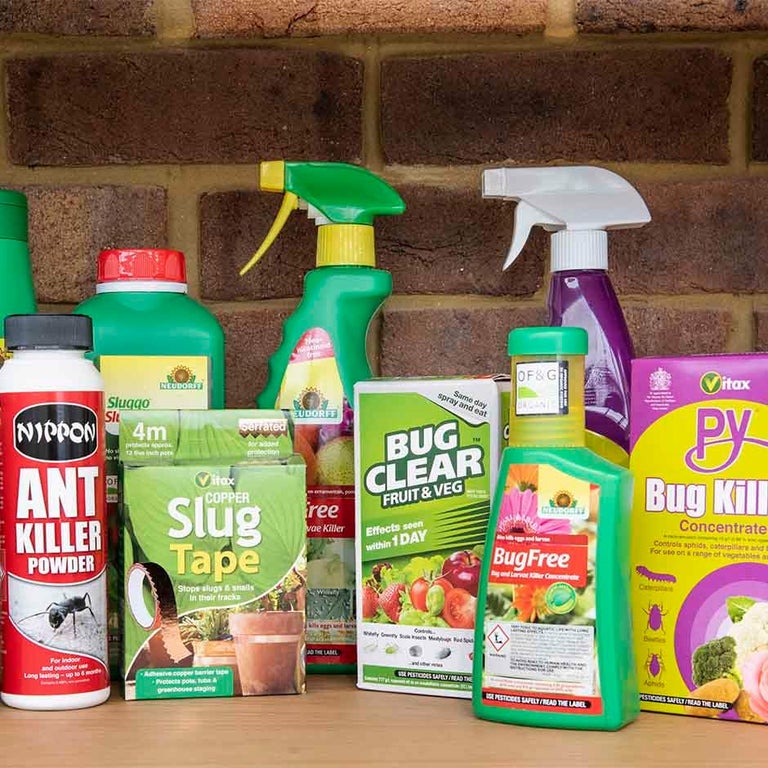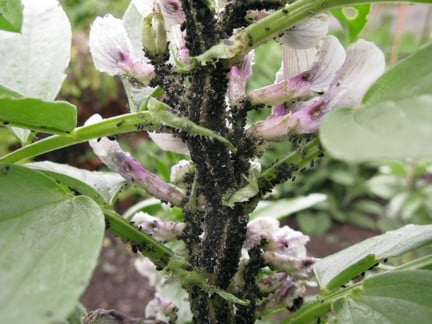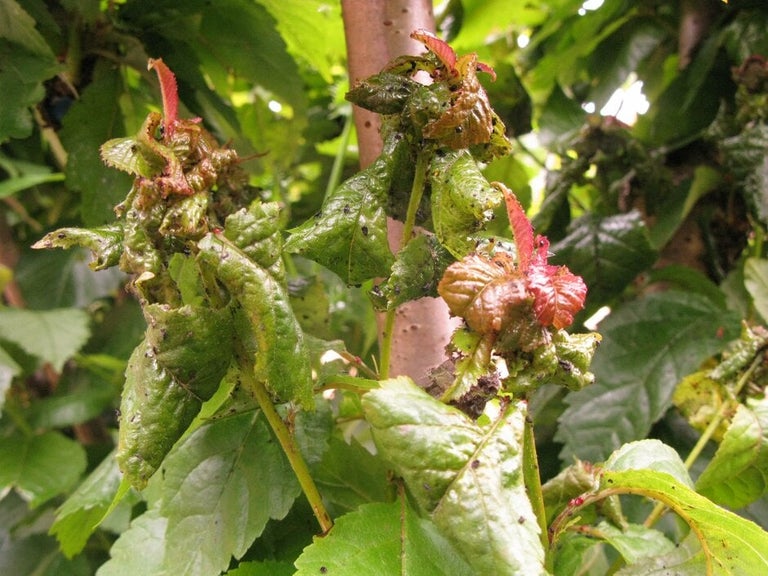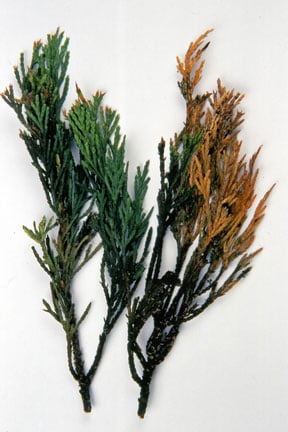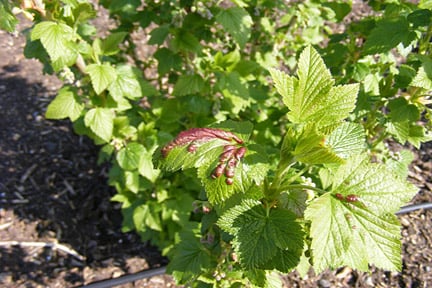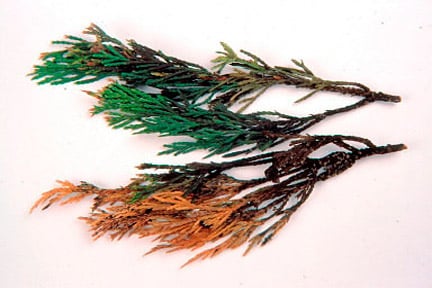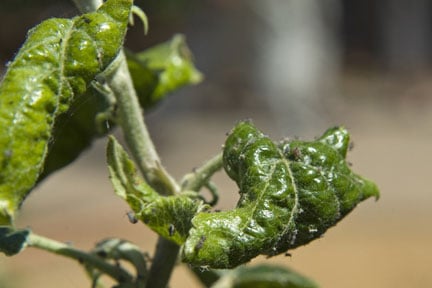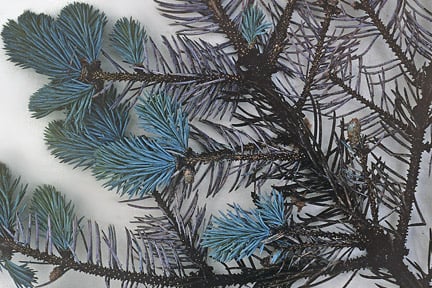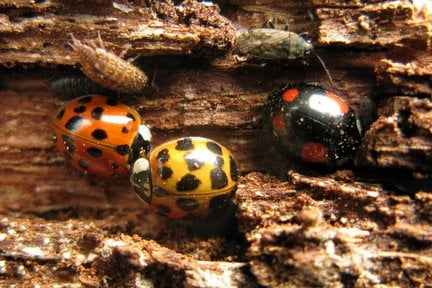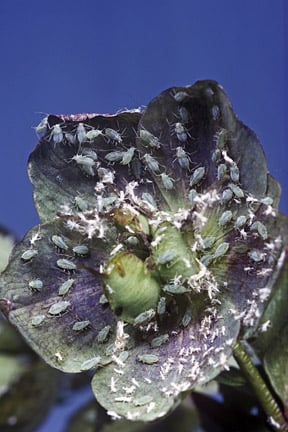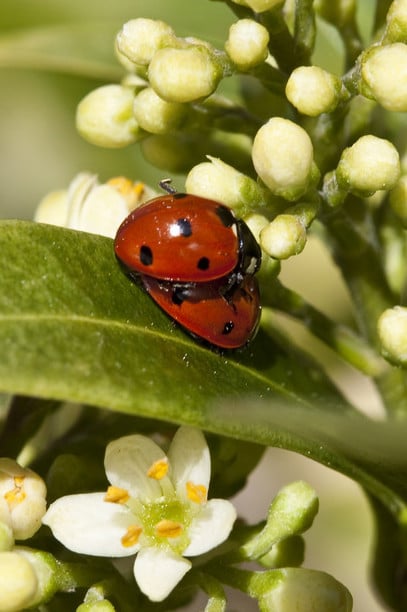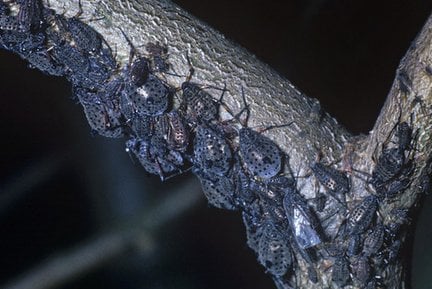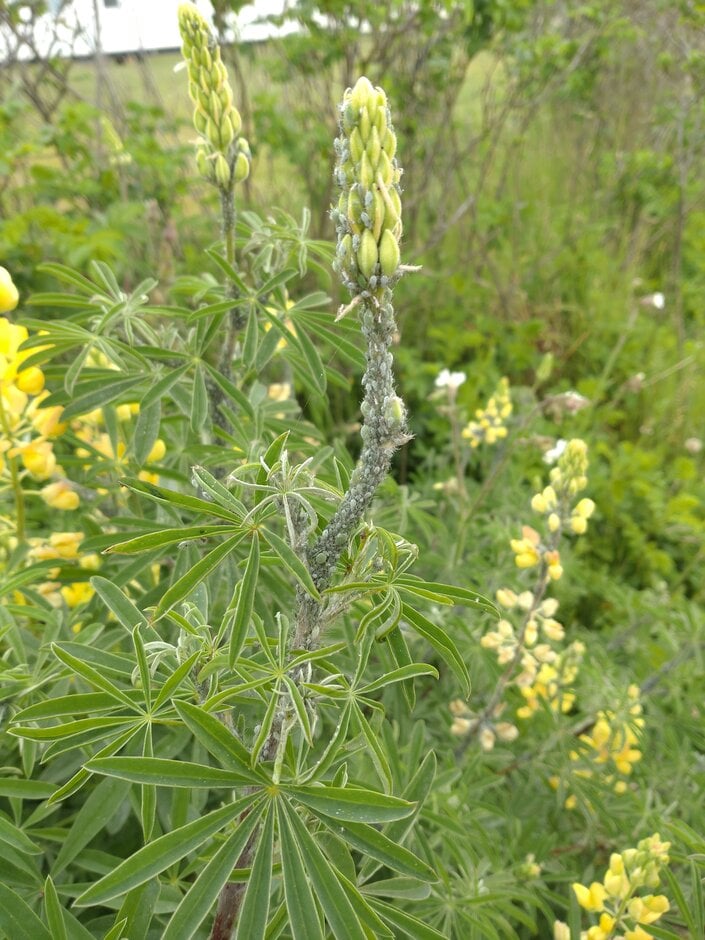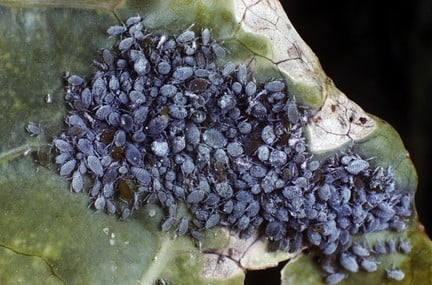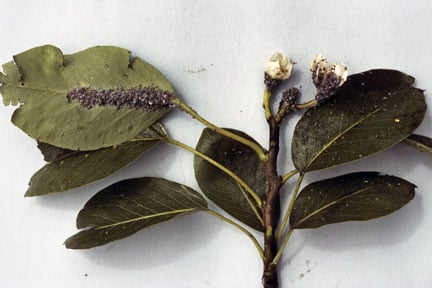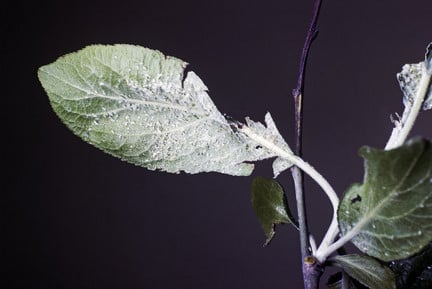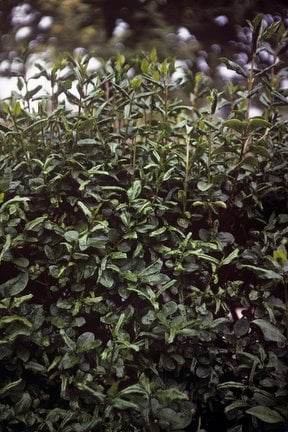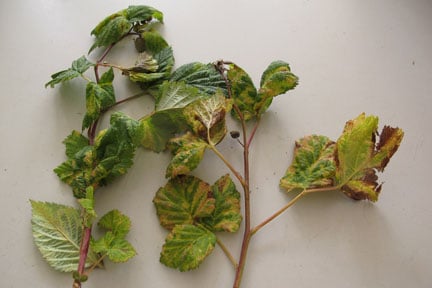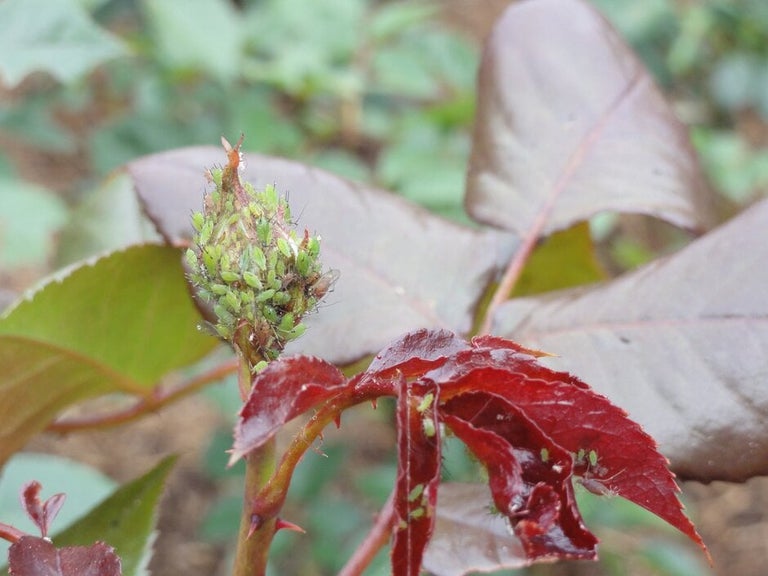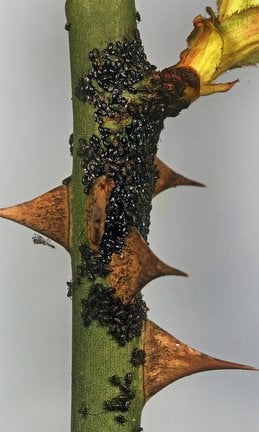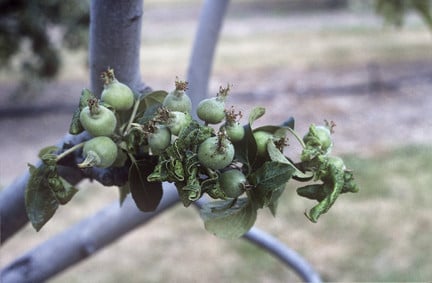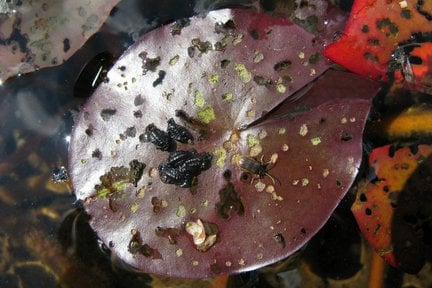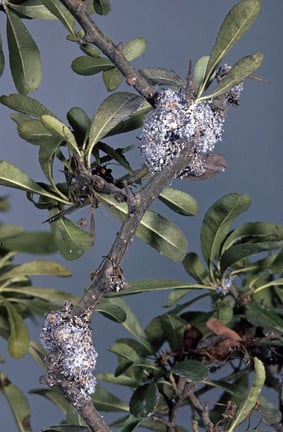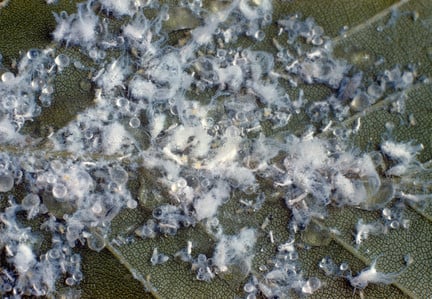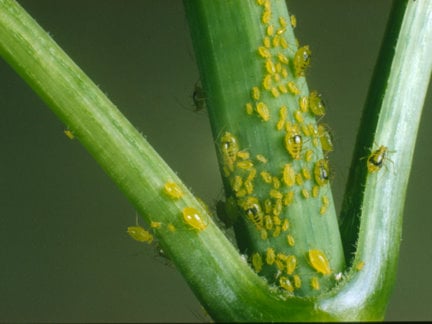
Quick facts
Common names - Aphids, greenfly, blackfly, plant lice
Scientific name - True bugs (Hemiptera) in the Aphidoidea
Plants affected - Most plants are susceptible
Main symptoms - Presence of aphids, poor/distorted growth, sticky honeydew and sooty moulds
Most active - Spring and summer on garden plants; all year round indoors
What are aphids?
Aphids are -sucking true bugs. They range in size from 1 to 7 mm (¼ in or less) long. Some aphids are known as greenfly or blackfly, but there are species that are yellow, pink, white or mottled. Some species, like woolly beech aphid and woolly aphid on apple, cover themselves with a white waxy secretion and can be confused with some scale insects, mealybug or whitefly. A few species such as the Pemphigus aphids on poplar (Populus) cause plants to produce galls inside of which they live. Most aphids suck sap from foliage, stems and flowers but some feed from roots.
There are more than 500 aphid species in Britain. Some feed on only one or two plant species, but others can be found on a wide range of plant hosts. Many have lifecycles that involve more than one host plant. Almost any plant can be a host to aphids, including ornamentals, vegetables, fruits, greenhouse plants and houseplants.
Symptoms
You may see the following symptoms:
- It is usually possible to see aphid colonies with the naked eye, many species colonise shoot tips, flower and the underside of younger leaves
- Aphids can cause stunted growth with curled or distorted leaves and can weaken the plant
- Many aphids excrete a sticky honeydew on which black can grow
- White cast skins of aphids can accumulate on the upper surface of leaves
- Ants may be found climbing plants with aphid colonies, they tend the aphids obtaining honeydew as a reward. The ants will remove aphid predators

Management
What should I do? Here are our top tips to your most common questions on managing aphids.
Should you remove aphids? Tolerate aphids where possible. It is usual to have some in a healthy, balanced garden. They are a vital food source for a wide range of wildlife in the garden
Do aphids kill plants? Very rarely. Some aphids cause some leaf and distortion, they can spread plant virusesand you might see some honeydew on which a harmless sooty mould can grow. This can be wiped off with a damp cloth.
Do I have to control aphids? You don’t have to kill or control them. They are part of the of gardens and a vital food source for other wildlife in your garden. If you do decide to control aphids, these are the ways you can cause least harm to the environment and avoid .
Should I use pesticides to control aphids? No - The RHS recommends that you don't use pesticides. This is because most pesticides (including organic types) reduce biodiversity, including natural enemies, impact soil health and have wider adverse environmental effects. Here are some of the steps you can take to manage aphids:
- Check plants frequently so you can act before the damage has developed
- Use finger and thumb to squash aphid colonies
- Encourage the natural enemies of aphids in your garden, such as ladybirds, ground beetles, hoverflies, parasitoid wasps and earwigs. In spring, aphid populations increase before the natural enemies are active in sufficient numbers – so if you wait a while, they’ll often give the control
- Don’t bother attempting control of aphids on trees as they are considered part of the biodiversity trees support and natural enemies will normally reduce numbers
- Some natural enemies of aphids can be purchased as biological control for use in greenhouses, including hoverfly larvae, lacewing larvae and several parasitoid wasps. More information about these can be found on the ‘aphid predators’ page.
Downloads
Biological control suppliers (downloads pdf document)
Biology
The life cycles of each aphid species differ in general for much of the year, aphid colonies consist of wingless females that give birth to live young. Winged forms develop when overcrowding, deterioration in the host plant or seasonal changes induce a move to another plant. Most aphid species overwinter as eggs but some can remain as active aphids, particularly in mild winters or on indoor plants.
Many aphids, especially those on fruits and vegetables, go through an annual cycle that involves two or more host plants. The plant on which overwintering eggs are laid is often a tree or shrub. In the spring, the eggs hatch and the aphids feed on the young foliage. By early summer, the foliage has grown older and tougher, this combined with increasing temperatures and day-length induces winged forms of the aphid that migrate to the summer host plant. This is usually a non-woody plant with soft, succulent foliage. Some aphids, however, spend the whole year on one type of plant, although they may be active for only part of the year.
Some aphids can transmit plant viruses. This is a particular problem on soft fruits, such as strawberry and raspberry, and some vegetables such as tomatoes and plants of the cucumber/marrow family, as well as on some ornamental plants, such as dahlias, lilies, pelargoniums, tulips and sweet peas. Virus-affected plants should be destroyed to prevent the disease being spread to other plants.


